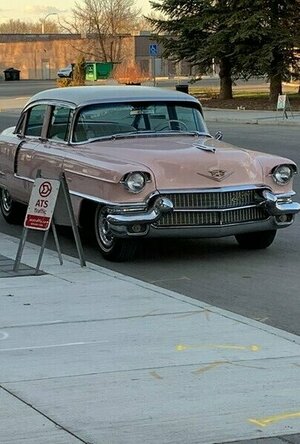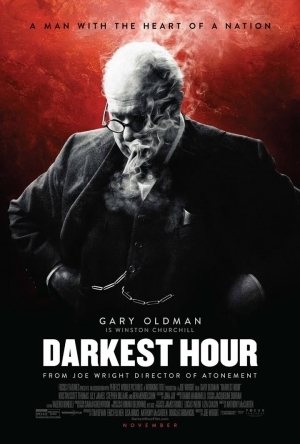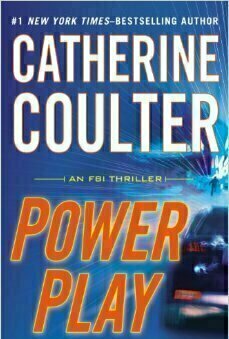
Power Play (FBI Thriller, #18)
Book
Natalie Black, the U.S. ambassador to the Court of St. James, has returned to Washington, her job in...
Mystery Suspense Book series Thriller
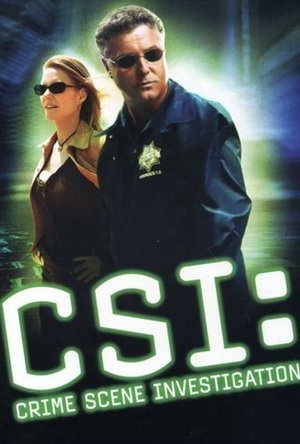
CSI: Crime Scene Investigation - Season 3
TV Season
Grissom begins to suffer from hearing loss ("Inside the Box"), as Catherine faces the possibility of...
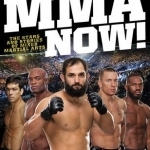
MMA Now!: The Stars and Stories of Mixed Martial Arts
Brian Sobie and Adam Elliott Segal
Book
Pound for pound, the most revealing book on the sport today. Mixed Martial Arts (MMA) is one of the...

Safeguarding Intangible Cultural Heritage
Peter Davis, Michelle L. Stefano and Gerard Corsane
Book
Awareness of the significance of intangible cultural heritage (ICH) has recently grown, due to the...
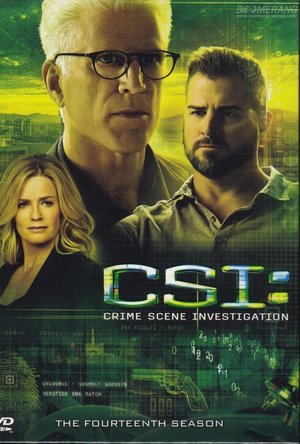
CSI: Crime Scene Investigation - Season 14
TV Season
D.B. and Finn lead the hunt for Morgan, while Brody makes a shocking discovery that endangers her...
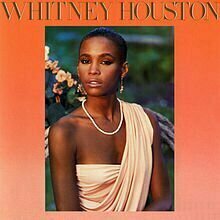
Whitney Houston by Whitney Houston
Album
Whitney Houston is the self-titled debut studio album by American singer Whitney Houston. It was...

Murder at Sea
Book
Fear naut, the next Destinations Murder collection is here: Murder at Sea. Third in this...
Bob Mann (459 KP) rated Let Him Go (2020) in Movies
Dec 23, 2020
There are strong similarities in this story with a sub-plot of the excellent "Ozark", where the psychopathic Darlene Snell (Lisa Emery) is intent on having a child to grow up with on her remote ranch. The sense of tension there is recreated here, exacerbated by the movie's extremely slow (read "glacial") pace in its early stages. It's the same sort of rising dread that I felt with "Nocturnal Animals". This reaches its peak at a tense standoff over lamb chops at the Weboy ranch, but we are probably half-way into the film by then.
The slow pace however is broken by a couple of extremely violent scenes that earn the movie its UK-15 certificate. One (no spoilers here!) harks back to another Kevin Costner blockbuster where he was a bit luckier! And the finale turns a slightly sleepy tale of "two old folks" into an 'all guns blazing' action western that's highly unexpected. Although you could argue that this is tonally extremely uneven, it works and makes the movie a lot more memorable than it otherwise would be.
The standout leading performance here is the one from Diane Lane as the mentally tortured Granny pursuing her convictions across the country. Here writer/director Thomas Bezucha gives the character full rein. It's a memorable 'strong female' part, that would have been dominated by the male lead in the writing of films a few years back. Lane delivers a dramatic and rock-solid performance that has Oscar nomination written all over it.
I'm also a big fan of Kevin Costner, not just because he's a solid and reliable actor over many years. I always remember him gamely appearing as "The Postman"/'propeller-guy' in Billy Crystal's hilarious montage opening for the 70th Academy Awards. Anyhow, here he has his meatiest dramatic role in many years, and delivers fully on it. Top job, although I suspect this may not be his year for his elusive Best Actor award.
Finally, rounding out the Oscar hopefuls is the brilliant Lesley Manville as Blanche Weboy. It's a dream of a role for the Brighton-born star, nominated of course for the Best Supporting Actress two years ago for "Phantom Thread". And she is genuinely chilling here, firing on all cylinders like some sort of deranged Bette Davis on speed. She's used sparingly in the movie, but that makes her scenes all the more memorable. Another nomination perhaps? I'd predict so, yes.
I found this to be an uncomfortable watch, since I found myself in a moral quandary with the storyline. It's clear that Margaret is genuinely concerned for the safety of Jimmy (and less so, Lorna). Yet, what she is ultimately prepared to do is consider child abduction, when the law if probably on the side of the other party. Sure, the lifestyle and attitudes of the Weboys are alien to this more traditional "Granny". But although Blanche rules with a Victorian-level of grit, isn't she - at least before any of her more vicious tendencies emerge - entitled to do that? The film firmly roots itself behind the Blackledge's as "the good guys", but the script cleverly has you questioning that at various points,
Two technical categories in "Let Him Go" are also worthy of note. The cinematography is by Guy Godfree, and the sweeping vistas of Montana and North Dakota (actually Alberta in Canada!) are gloriously delivered. And the music by Michael Giacchino - one of my favourite composers - is cello-heavy and fitting for the sombre storyline. I always assess the quality of a score by whether I annoy the cinema cleaners by sitting until the last of the end credits have rolled, and this is one I did that to.
As the last movie I see before Christmas, "Let Him Go" is not exactly a feelgood festive offering. It's a well-crafted and thoughtful story, but not one to make you feel good inside, for the reasons outlined above. If you are a movie-lover though, then it's an interesting watch, if only for the fine acting performances on offer.
(For the full graphical review, please check out the "Bob the Movie Man" review on the web here - https://bob-the-movie-man.com/2020/12/23/let-him-go-is-not-a-joyous-affair-but-delivers-oscar-worthy-performances/. Thanks.)
Bob Mann (459 KP) rated Darkest Hour (2017) in Movies
Sep 29, 2021
It’s 1940 and Western Europe is under siege. Neville Chamberlain (Ronald Pickup, “The Second Best Exotic Marigold Hotel“) is the Conservative Prime Minister but is voted out of office in an attempt to form a grand coalition government with Labour leader Clement Atlee (David Schofield). Despite appearing a shoe-in for the role, Viscount Halifax (Stephen Dillane) turns it down, thinking that his alternative (and bête noire) would drink from the poisoned chalice and be quickly be out of his (and Chamberlain’s) hair. For that alternative choice is the volatile and unpredictable Churchill (Gary Oldman), grudgingly invited into the job by King George VI (Ben Mendelsohn, “Rogue One“). With the Nazi’s bearing down on the 300,000 encircled troops at Dunkirk, and with calls from his war cabinet to capitulate and seek terms of settlement, this is indeed both Churchill’s, and the country’s, ‘darkest hour’.
Despite the woeful lack of historical knowledge among today’s youngsters, most will be at least aware of the story of Dunkirk, with many having absorbed Christopher Nolan’s film of last summer. This film is almost the matching bookend to that film, showing the terrifying behind-closed-door events that led up to that miracle. For it was terrifying seeing how close Britain came to the brink, and I’m not sure even I really appreciated that before. While this might have been a “thriller” if it had been a fictional story, we well know the outcome of the story: but even with this knowledge I still found the film to be extremely tense and claustrophobic as the net draws in around Churchill’s firmly-held beliefs.
Gary Oldman’s performance is extraordinary, and his award nominations are well-deserved. We have grown so used to some of his more over-the-top Russian portrayals in films like “Air Force One” and last year’s (pretty poor) “The Hitman’s Bodyguard” that it is easy to forget what a nuanced and flexible actor he is. Ever since that “No, surely not!” moment of that first glimpse of the film’s trailer, it has almost been impossible to ‘see’ Oldman behind the brilliant make-up of the character (Kazuhiro Tsuji gets a special credit for it). But his eyes are in there, and there are some extreme close-ups (for example, during a bizarre and tense phone call with Roosevelt (David Strathairn)) when you suddenly see “There you are!”.
The supportive wife – Clemmie (Kristin Scott Thomas) gives Winston (Gary Oldman) a hug.
While I have nothing against Brian Cox as an actor, I far prefer the portrayal of Churchill on show here compared to last year’s “Churchill“: true that that film was set three or four stressful years later, but Cox’s Churchill was portrayed as an incompetent fool, an embarrassment to the establishment that have to work around him. Oldman’s Churchill is irascible, unreasonable, but undeniably a leader and a great orator.
Mirroring “Churchill” though, the action is seen through the eyes of Churchill’s put-upon secretary, here played delightfully by Lily James (“Downton Abbey”, “Baby Driver“) who perfectly looks and sounds the part. The character is more successful than that of Ella Purnell’s Garrett in that she is given more room to develop her character and for the audience to warm to her. Oldman is getting all the kudos, but Lily James really deserves some for her touching and engaging performance here.
Perfectly cast: Lily James as Churchill’s secretary Elizabeth Layton.
Also in Oldman’s shadow is the always marvelous Kristin Scott Thomas (“Four Weddings and a Funeral”, “The English Patient”) as Clemmie Churchill, expressing all the love and frustration associated with being a long-suffering wife to an over-worked husband in the public service.
At the pen is “The Theory of Everything” writer Anthony McCarten, and I’d like to say its a great script but with most of the best lines (“a sheep in sheep’s clothing” – LoL) coming from Winston himself it’s difficult to tell. Some of the scenes can get a bit laborious and at 125 minutes – though not long by any means – the script could still perhaps have had a nip and tuck here and there.
Where some of this time is well spent though is in some sedate shots of London street life, across two separate scenes panning across everyday folk as the stresses of war start to become more evident. This is just one of the areas where director Joe Wright (“Atonement”, “Pride and Prejudice”) shows considerable panache, ably assisted by the cinematography of Bruno Delbonnel (“Inside Llewyn Davis“): a boy closes his telescope-fingers around Churchill’s plane; a bomb’s eye-view of the beleaguered Brigadier Nicholson in Calais; and – very impressively – the smoky imperiousness of the House of Commons set.
An atmospheric chamber: the recreation of the wartime House of Commons is spectacular (with production design by Sarah Greenwood (“Anna Karenina”, “Atonement”)).
And most-importantly Wright delivers what Christopher Nolan couldn’t deliver in “Dunkirk“: a properly CGI’d vista of hundred of small boats crossing the channel to Dunkirk. Now THAT is a scene that Kenneth Branagh could justly have looked in awe at!!!
There are a number of scenes that require disbelief to be suspended though: the biggest one being a tube train ride – very moving and effective I must say – but one that features the longest journey between any two stations on the District Line than has ever been experienced!
One stop on the District Line via Westminster…. via Harrow-on-the-Hill!
So this is a great film for really reliving a knife-edge moment in British history, and is highly recommended particularly for older viewers. If I’m honest though, between “Darkest Hour”, “Churchill” and John Lithgow’s excellent portrayal in “The Crown” I’m all over portrayals of the great man for a few years. Can we please move on now Hollywood?
